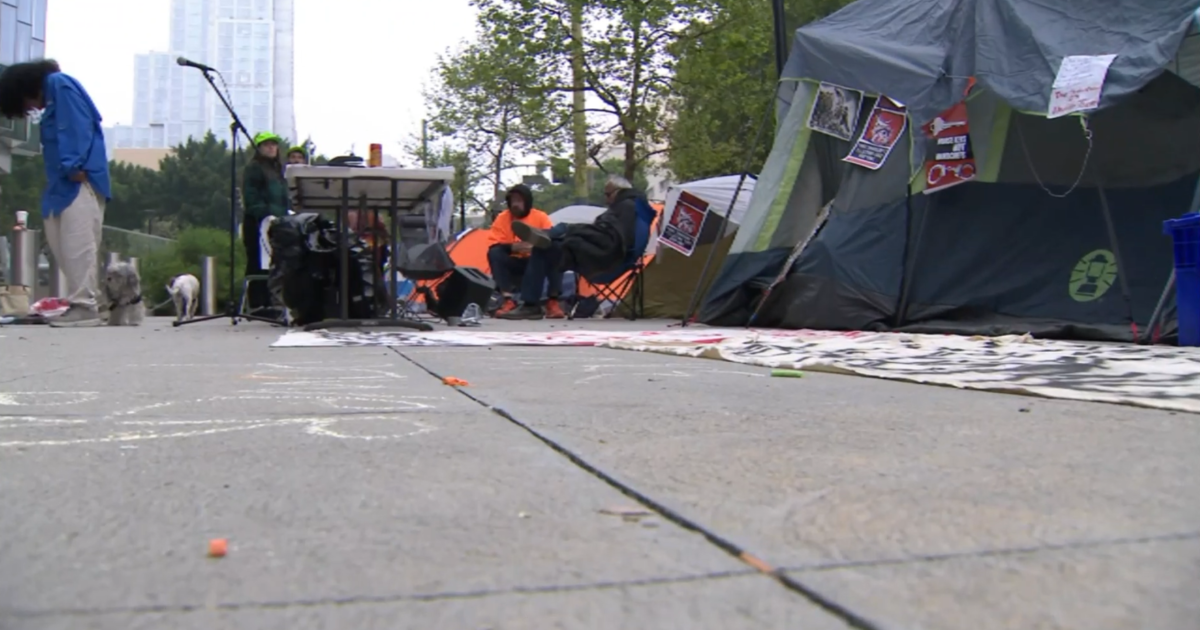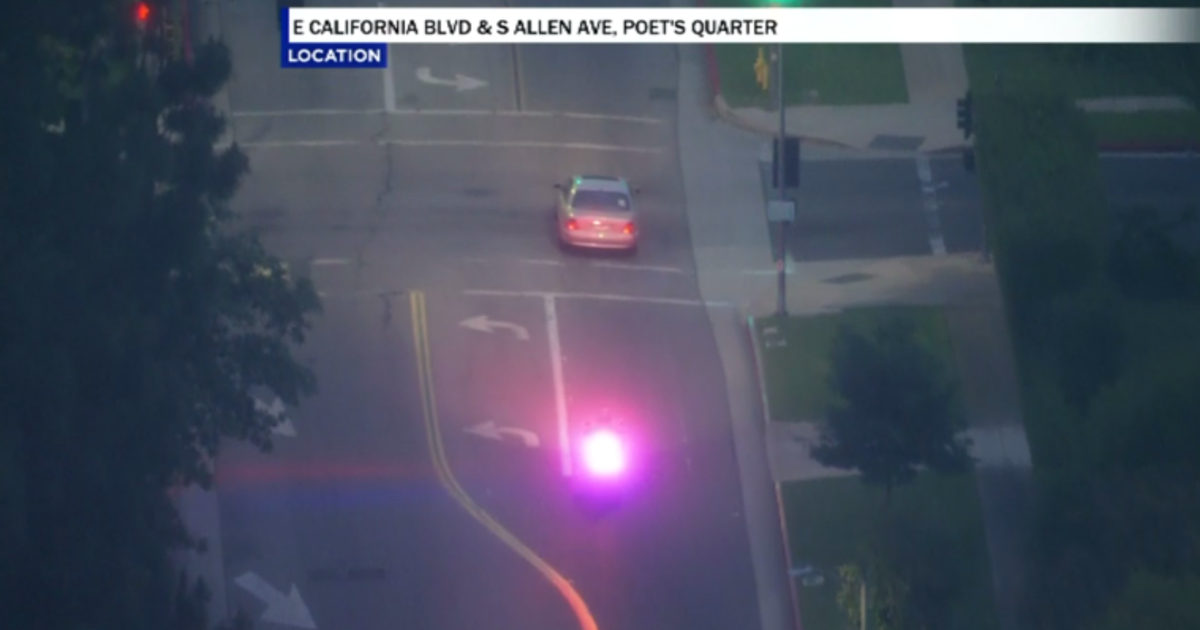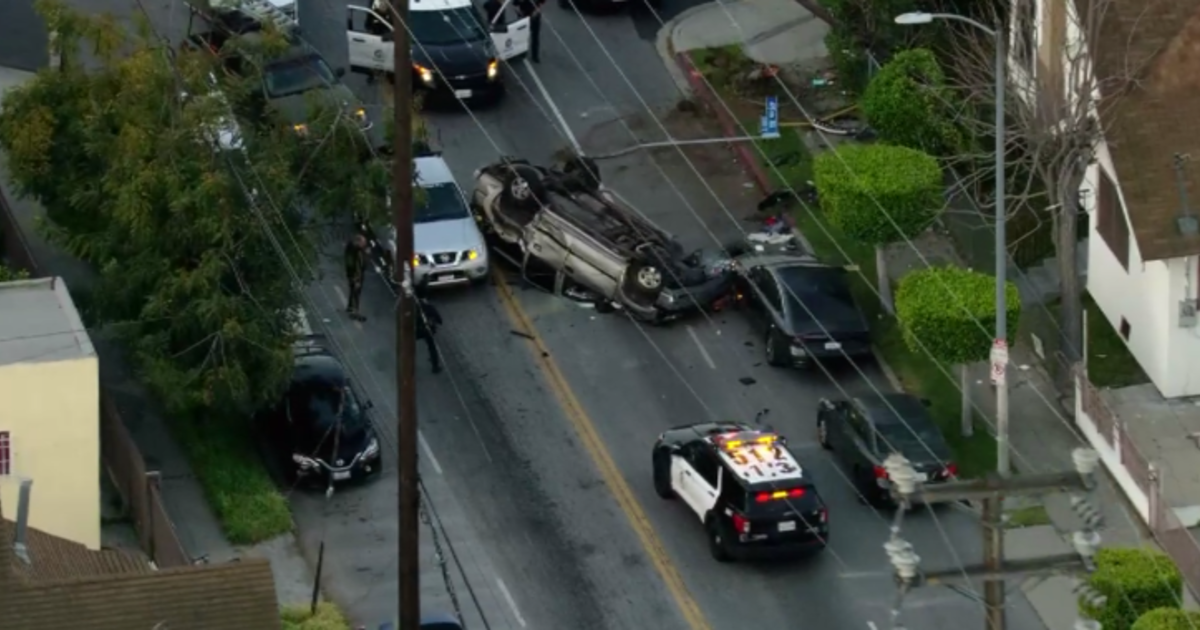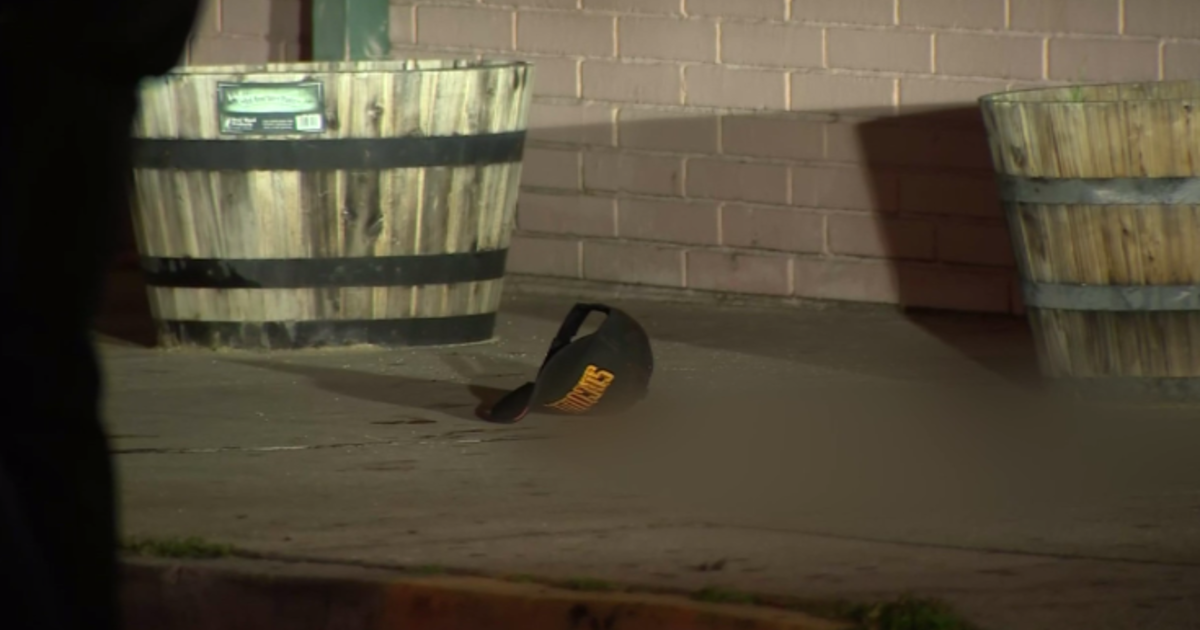Prop 32's Limit On Unions' Political Spending Stirs Controversy
LOS ANGELES (AP) — California voters are being asked to starve unions of the tens of millions of dollars they use to finance campaigns and political organizing, as the nation's largest state wades into the national debate over labor clout.
The battle over Proposition 32 on the November ballot follows conflicts in Wisconsin, Ohio, Indiana and elsewhere where efforts to dilute the strength of organized labor have produced political tumult, a flood of TV ads and widespread demonstrations.
The proposal, which supporters describe as a cure-all for special-interest politics, has attracted national attention for a provision that would ban the way California unions traditionally raise money to support candidates and fuel political activity.
Overall, there are about 2.4 million union members in California, and that money has helped make teachers, prison guards and other public workers some of the most feared institutions in Sacramento, where labor has longstanding ties with Democrats who now control both chambers of the Legislature and every statewide office.
Speaking last month in Los Angeles, AFL-CIO President Richard Trumka described California as a firewall where unions must turn back the latest attempt to "silence the voice of working people." California voters rejected similar measures in 2005 and 1998.
"Without the voice of working people, politics don't work. Not for working people, and not for America. And that's why we use our unions to balance the power of corporations," Trumka said, according to remarks posted on the union website.
Unions, Trumka said, are fighting "the same right-wing billionaires who tried to kill collective bargaining in Ohio, Wisconsin and Indiana."
The vote comes with unions on the defensive across the nation.
Government workers are facing political pressure to roll back pay and benefits that are straining state budgets. Indiana Gov. Mitch Daniels signed a so-called right-to-work law in February banning unions from collecting mandatory fees for representation — a move that emboldened supporters in Minnesota, Michigan, Ohio and other states.
Labor suffered a stinging defeat in Wisconsin earlier this year, where Republican Gov. Scott Walker beat back a recall challenge following his push to limit collective bargaining rights for most public workers. In June, voters in San Diego and San Jose overwhelmingly approved reduced retirement benefits for city workers. Those reforms, which are being challenged in court, hit current employees as well as future hires.
The money being funneled into the California race provides a stark look at the stakes, mirroring previous battles in which union strength has been tested at the state Capitol.
A long list of unions and other opponents have raised roughly $40 million for the fight so far, with the biggest checks cut by the California Teachers Association.
Committees supporting the proposition have pulled in nearly $20 million, with more than $4 million coming from the American Future Fund, an Iowa-based organization that supports conservative causes with ties to billionaires Charles and David Koch.
Other prominent supporters include Stanford physicist Charles Munger Jr., the son of billionaire Berkshire Hathaway Inc. Vice Chairman Charles Munger, who has donated more than $10 million, and former Univision CEO Jerry Perenchio, a frequent Republican donor, who has given $800,000.
Proposition 32 would prohibit corporations and unions from collecting money for state political activities from employees or members through paycheck deductions. It also prohibits unions and corporations from making donations to state candidates.
It would hit unions hardest: Corporations do not typically deduct money from employee pay for state political activities, but unions use the practice to fill most of their political treasuries.
Additionally, the proposal would not stop corporations, wealthy individuals or unions from spending unlimited amounts of money on political campaigns through so-called independent expenditure committees. But union money for such purposes would be severely restricted, at least temporarily, if payroll deductions are banned.
California Common Cause, an advocacy group that has pushed for campaign-finance reforms, supports some aspects of the proposition, such as banning contractors from donating to elected officials who have a role in awarding the contract. But, at its heart, Proposition 32 would "gut the ability of private and public unions from speaking in a democracy," spokesman Phillip Ung said.
Jake Suski, a spokesman for the committee supporting the proposition, said it's not about the balance of power in Sacramento.
"It creates a playing field where the individual voter has a bigger voice in the political process," rather than unions or corporations, he said.
Recent independent polls found the proposal trailing, but many voters remain undecided.
Left-leaning California would seem an unlikely state to challenge labor.
Business interests — led by railroad magnates — held a lock on Sacramento lawmakers into the early 20th century, but that began to change during the Progressive Era when reformers sought to curb government corruption and corporate power. The state is the birthplace of the farm workers union, and a dock strike in the 1930s led to the unionization of ports across the West.
Jaime Regalado, former executive director of the Pat Brown Institute of Public Affairs at California State University, Los Angeles, said while there has been some backlash over union benefits he doesn't see the labor conflict witnessed in other states taking hold in California. State polls have found routinely that corporations tend to be viewed more negatively than unions.
Compared to more conservative states "it's going to be a much harder sell," Regalado said. "It doesn't mirror what we are seeing in the Midwest. It's not a hostile climate here."
(© Copyright 2012 The Associated Press. All Rights Reserved. This material may not be published, broadcast, rewritten or redistributed.)



